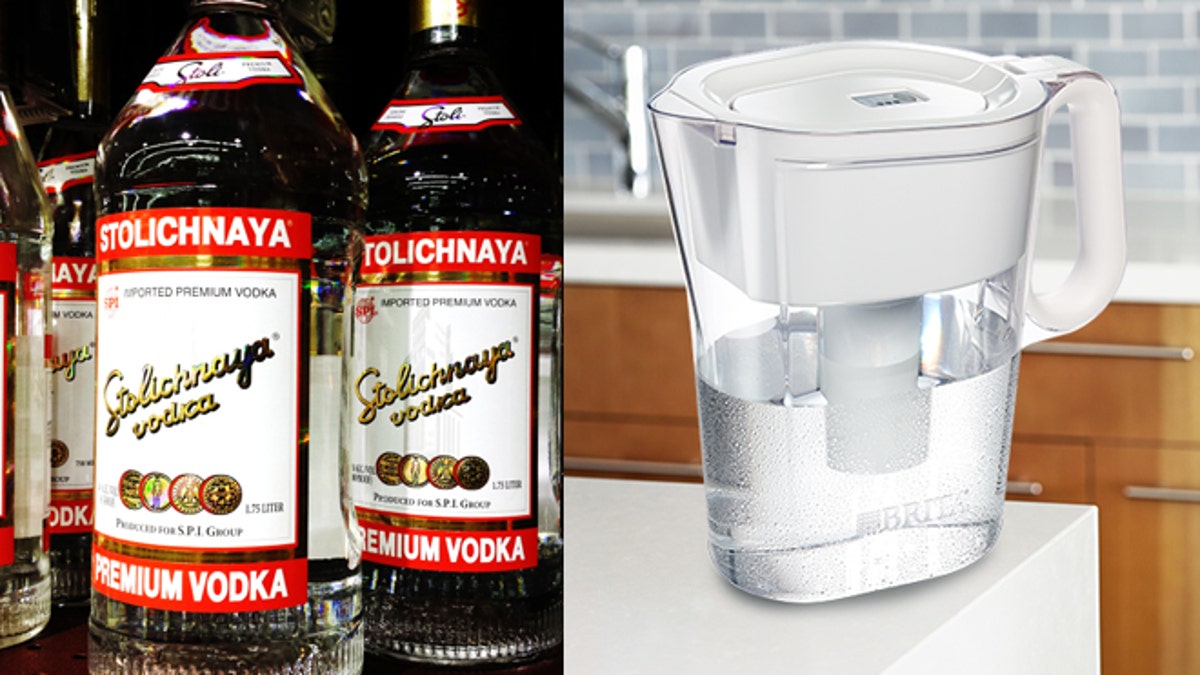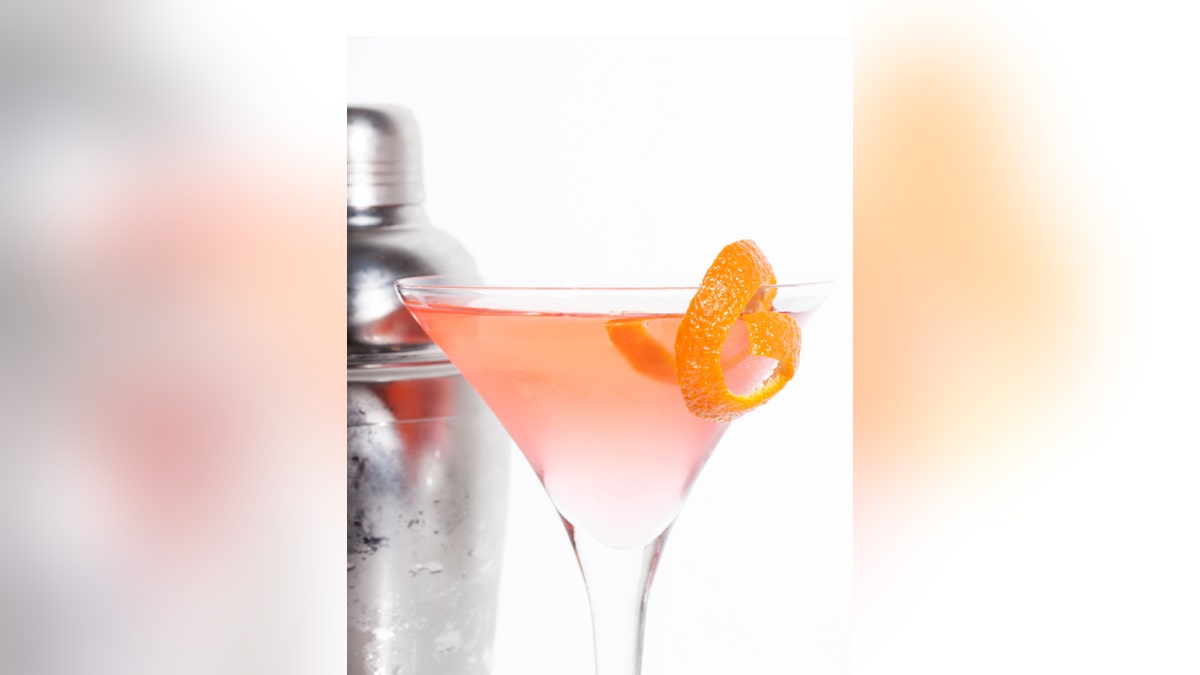
This inexpensive hack might just make your liquor cabinet tastier. (iStock/Brita)
Nestled in the back of your liquor cabinet there’s a dusty handle of vodka that’s so cheap and so harsh you won't even mix it with cranberry juice. Your friend (acquaintance, really) gifted it to you at a house party you threw half a decade ago, and every time you see it, you feel you should really just toss the thing.
But what if I told you this vodka could actually get a little more palatable? Luckily, there's a simple trick that bridges the gap between well-caliber swill and top-shelf booze. All you need to do is run that cheap vodka through a standard-issue Brita filter.
At least, that's what the internet says. My question: Could this possibly work?

Take your vodka cocktails from ew to wow with this simple hack. (iStock)
A little bit of knowledge about the vodka distillation process reveals that the idea isn't totally crazy. In vodka distillation, a producer takes fermentable materials (anything from wheat to heirloom single-variety potatoes) and mills and cooks them into a pulp know as the mash. The mash gets a little yeast added to it, and it ferments until the sugars have converted to alcohol. Once it finishes with distillation, the vodka gets blended with water and then filtered, using activated charcoal to remove any impurities.
The internet's theory: The Brita, which also uses charcoal to filter tap water, just continues that process.
To test this theory out, I poured some low-tier vodka (it comes in a plastic bottle and costs $19) through the Brita filter four times. To my surprise, the vodka had less of a burn and a less sharp aroma—and it absolutely tasted better than a swig of the bottle that remained unfiltered.
Then I tried the method with a higher-end vodka (this one came in a frosted glass bottle and cost $67). After a few trips through the filter, it, too, was smoother and less hot.
So, it kind of works!
David Kargas, a representative from Brita, didn't discount the filter's ability to work magic on vodka—he’s just uncertain about what, exactly, he’s filtering out.
But I wanted to know what I was removing from the vodka. So I called Brian Facquet of Prohibition Distilling in Roscoe, NY.
“What separates well vodka from premium vodka is oil and sugar,” says Facquet. Glycerol is an alcoholic compound that changes the mouthfeel of the vodka, while sugar often gets added to change the flavor and mask some of vodka's burn. Both of these additions are common in European vodkas such as the ones I tested with, and are likely what the Brita helped remove.
Thirsty for more vodka tips? Check out the full story.
More from Epicurious
12 Lightning-Fast Chicken Dinners to Make Now
14 Main Course-Worthy Vegetarian Salads
The 12 Easiest No-Cook Pastas Ever
